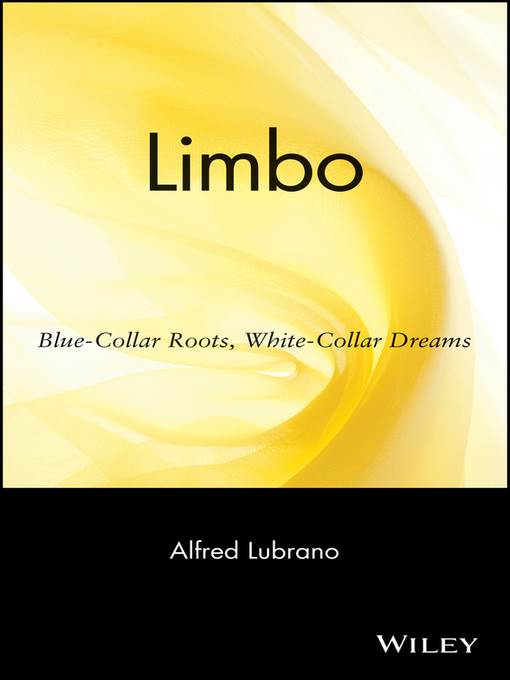
Limbo
Blue-Collar Roots, White-Collar Dreams
کتاب های مرتبط
- اطلاعات
- نقد و بررسی
- دیدگاه کاربران
نقد و بررسی

July 28, 2003
Lubrano's view of the challenges that upwardly mobile children of blue-collar families (he calls them Straddlers) face in establishing themselves in white-collar enclaves could spark lively debates among Straddlers themselves, not to mention those Lubrano views as having a head start based on birth into a white-collar family. In this combination of memoir and survey, the Philadelphia Inquirer
staff reporter recalls his freshman year at Columbia; he'd expected classmates to regard him as sophisticated because he was a New Yorker. However, this son of a Brooklyn bricklayer found himself on the outside of elite cliques populated by men he characterizes as "pasty, slight fellas—all of them seemed 5-foot-7 and sandy-haired." This was only the beginning for Lubrano, who came to see entry into a select educational institution as a harsh cultural dividing line between his blue-collar upbringing and his white-collar future. Becoming a journalist cost him emotionally when he felt torn between abandoning cherished values from his youth and accommodating his new profession's demands. Lubrano's interviews with other Straddlers have convinced him that ambition puts many of them in positions fraught with similar ambivalence and unexpected culture shock. With quotes from Richard Rodriguez and bell hooks, Lubrano illustrates his thesis: "Limbo folk remain aware of their 'otherness' throughout their lives perpetual outsiders." Yet he's quick to recognize individual Straddlers who've persevered in the face of those outsider feelings (though, regrettably, he doesn't share self-reflection). Straddlers' ultimate challenge, Lubrano opines, is to be as steadfast and self-possessed in reconciling their white-collar present with their blue-collar heritage as they have been in achieving their professional goals. Agent, David Vigliano. (Nov.)Forecast:A national advertising and publicity campaign and co-promotions with the
Philadelphia Inquirer and NPR should attract readers who've experienced the duality Lubrano describes.

October 1, 2003
Poor Alfred Lubrano! An award-winning reporter with the Philadelphia Inquirer and commentator for National Public Radio, he owns 11 backyard-bred horses on a farm in South Jersey: "I hold our chestnut yearling Beau Soleil as a friend French braids his blond mane in preparation for his Devon debut," he reports. Life is good-but that's the problem: Lubrano cannot reconcile his father's being a construction worker with his becoming an affluent professional. The result is Limbo, a stringing together of Lubrano's and others' thoughts on the pain of straddling two different worlds. Lubrano's journalism background apparently precludes any sociological methodology: the narrative is full of broad generalizations with little substantiation. One may wonder what country Lubrano was born in: aren't most Americans of a "hybrid class"? Don't most parents aspire to have their children exceed their own station in life? And what about the current glut of unemployed graduates? Now there's a problem. My advice: Lubrano should stop kvetching, and librarians should save their money for Sherry B. Ortner's New Jersey Dreaming: Capital, Culture, and the Class of '58, which explores the forces that influenced the author's classmates' lives after graduation. Many of them went from blue-collar families to the middle class, but Ortner analyzes the phenomenon with scholarly expertise rather than bemoaning it.-Ellen D. Gilbert, Princeton, NJ
Copyright 2003 Library Journal, LLC Used with permission.

September 15, 2003
This country always celebrates the idea that there is enormous opportunity here to move up from one's station in life, to achieve greatness from the most humble of roots. But for those who are the first from a traditionally blue-collar family to enter college and move into the white-collar workplace, there is a darker side to success when they find themselves alienated from both their own family and their strange new middle-class world. Lubrano, himself an Italian American son of a bricklayer who transcended his roots to become an award-winning journalist, wrote this book in an attempt to reconcile this dichotomy and explore the unique challenges of this transitional social class. Interspersed with his own story are the stories of more than 100 others whom he calls "Straddlers" because they straddle two worlds, "many of them not feeling at home in either, living in a kind of American limbo." This is an emotionally charged study of class values, a subject even touchier than race or gender.(Reprinted with permission of Booklist, copyright 2003, American Library Association.)

























دیدگاه کاربران